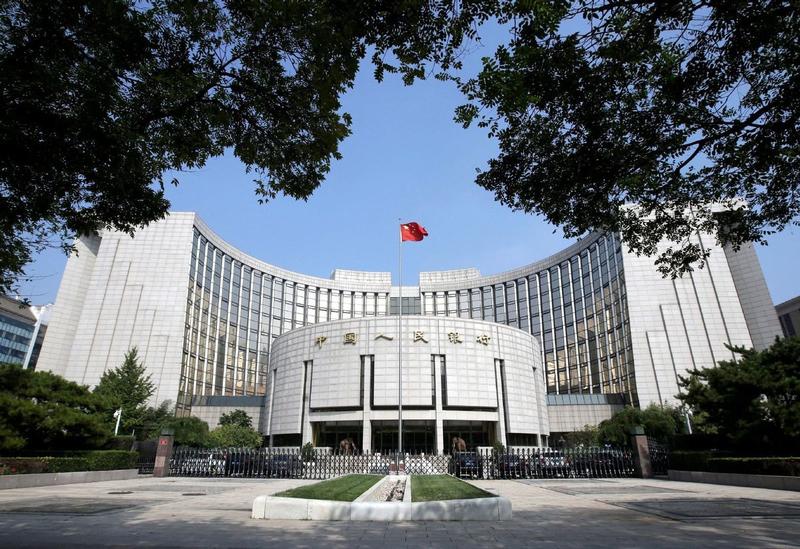 The People's Bank of China in Beijing. (Photo / Agencies)
The People's Bank of China in Beijing. (Photo / Agencies)
PBOC adds 108.2 b yuan into Pledged Supplemental Lending for major projects
China's central bank has relaunched a funding tool for policy banks to support infrastructure investment as part of the nation's accelerated efforts to ensure stable economic performance in the fourth quarter, experts said on Monday.
They commented after the People's Bank of China said on Saturday it added a net 108.2 billion yuan ($15.2 billion) last month in Pledged Supplemental Lending — a tool to provide development and policy banks with low-cost and long-term funding — marking the first PSL increase since February 2020.
With the increase in September bringing the outstanding value of the PSL to 2.65 trillion yuan, the number may further grow as the nation counts lending from policy banks as a key pillar for growth stabilization, the experts said.
Chinese shares fell on Monday, with the benchmark Shanghai Composite Index down 1.66 percent to close at 2974.15, the first time the index dropped below 3,000 since May
Created in 2014, the PSL was initially used to finance shantytown renovation, with development and policy banks pledging bond and credit assets with the PBOC for long-term funding. Financing provided by the PSL this year may instead be mainly used to accelerate the construction of infrastructure projects, they added.
ALSO READ: China injects liquidity into market through MLF
Zhou Maohua, a macroeconomic analyst at China Everbright Bank, said the increased PSL can help ensure sufficient funding for major infrastructure projects, delivering a signal that the country is striving to bring the effects of pro-growth measures into full play as soon as possible.
Zhou's remark echoes a recent high-level meeting that called for full implementation of policies to stabilize the economy in the fourth quarter and making good use of policy-based and developmental financial instruments to expedite infrastructure construction.
The latest economic numbers indicate that China's recovery continues, but more efforts are necessary to stimulate domestic demand and boost market confidence.
Businesses have turned more sanguine about macroeconomic conditions in the third quarter, with the Entrepreneur Macroeconomic Heat Index up 0.4 percentage point from a quarter earlier to 26.9 percent, the PBOC said in a survey report on Sunday.
Yet consumers remain cautious in terms of spending, as 22.8 percent of surveyed depositors said they are willing to consume more, down 1 percentage point from the second quarter, the central bank said in another report.
READ MORE: PBOC injects liquidity into market in December
Chinese shares fell on Monday, with the benchmark Shanghai Composite Index down 1.66 percent to close at 2974.15, the first time the index dropped below 3,000 since May.
Amid lukewarm consumer sentiment and a property market downturn, the economy is still in urgent need of greater support for infrastructure investment to stabilize, said Ye Yindan, a researcher at the Bank of China Research Institute.
But room for fiscal policy to amplify such support might have narrowed due to local government debt constraints, Ye said.
"Therefore, policy-based financial instruments will remain a key pillar for growth stabilization, meaning that the outstanding value of the PSL will further increase," Ye added.
ALSO READ: China's central bank injects liquidity into market
As a funding tool featuring long maturity and low cost, the PSL matches the financing needs of infrastructure projects, which need a long period of time to generate cash inflow and have low rates of return, she added.
Ouyang Shijia contributed to this story.


